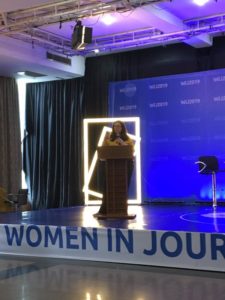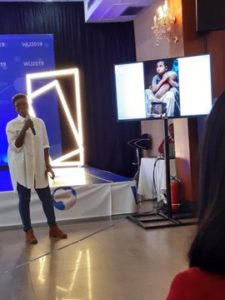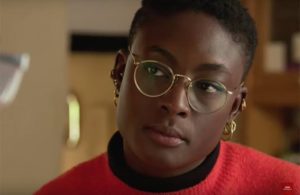Oyinlola Awonuga
Female journalists in Nigeria have been advised on how to make a success of their career despite the various challenges in the industry and gender limitations.
The advice was offered at the 5th edition of the Women in Journalism (WIJ) conference held in Lagos on October 5, 2019 with the theme “Action Journalism: Women on the front lines.”
A freelance journalist with the Canadian Broadcasting Corporation (CBC) and former staff of British Broadcasting Corporation (BBC), Anna Cunningham said consistency, courage and research are very crucial to becoming a successful female journalist.

According to her, there are lots of grants and opportunities available for journalists in Africa which female journalists can apply for and get.
“It took me a lot of hard work to be who I am today. I did a degree and a Post-Graduate in Broadcast Journalism. I knew that I want to do something in the news so I became interested in putting the voices, I began to approach people as I was pretty sure that everybody has a story to tell, and I air the most stricken angle of the story.
“Learning for me is continuous. I have 10 years freelance experience and 10 years in a staff position with British Broadcasting Corporation, but every second a way I learnt and met new challenges as I have not learnt everything I need to learn in the industry.
“I want to see women in the frontline, not women making tea in the offices because no matter what we think it’s still a male dominating profession. There is a need for us to get out there.”
She advised freelance female reporters to always take their safety and security seriously as they don’t have full back-up a big broadcasting organization.
“Have motivation in yourself and have confidence in the stories you want to pitch as you need to get paid for it. Learn to negotiate your price for a story as a freelance journalist,” she stated.
A freelance female Photojournalist who has reported terrorists’ attacks in Adamawa state, Nelly Ating, said despite not being a full-time staff of any organisation, her passion for the job has been her main motivation.

“If journalism is in you, it’s in you. I feel that as a journalist I owe it to myself to report these stories and if I don’t do this, in future I will be very angry with myself.”
Ating implored the participants not to neglect the little impact of their stories and to always know their motives in the practice of journalism.
Mayeni Jones, a multilingual and multimedia journalist who is BBC’s Nigeria correspondent, said, “we need more women to tell more stories in journalism that are yet to be told. These should be accurate, quick, on-time and reflective of what is going on.
She also cautioned on the need to be safety conscious while on assignment.
“No stories is what dying for even the @BBCWorld makes sure enough safety is put in place before sending you out. Your editor should know where you get a security app to track you or even Google map. But you shouldn’t be pushed to go to volatile areas

The aim of the conference is to advance conversations around the practice of journalism in Africa, promote best practices and supporting innovation in the profession.
A participant at the conference, Olabisi Salau said, “I feel refreshed attending this event, and it makes me want to practice the profession dutifully.”
“Also, I think journalism as a career prospect needs more training and conference for youths. Youth empowerment programme and leaders should be made available.”


